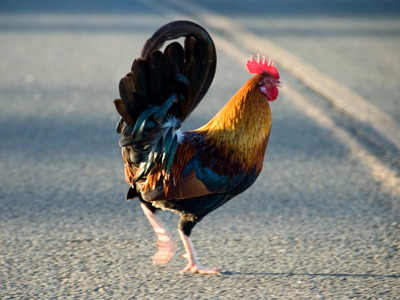
What's Been Going On? - Past Questions
Quiz playing is a wonderful way to increase your knowledge of English as a Second Language. Remember that all of our ESL quizzes have titles that are both friendly and serious at the same time… In the case of this quiz you might like to tell your friends about “What’s Been Going On?” but no doubt your teachers will talk about the “Past Questions quiz”! If you hear a specific term and you want to find a quiz about the subject then just look through the list of quiz titles until you find what you need.
Sometimes when English speakers meet, they may ask questions about each other's past by asking 'What's been going on?'... In other words, 'Is there any interesting news in your life since the last time we met?'
It is useful and important to learn past questions. Here is a quiz to help you practise doing that.
'Where on earth .... ... ? ... ... you everywhere!'
In the 1960s there was a famous song by Pete Seeger which asked ... :
The 'have gone' carries a suggestion that the flowers might come back in the future. A child at the zoo, who can't see an animal because it has gone off out of sight for a quiet sleep in its little house, might ask 'Where has the tiger gone?' ... in the hope that it will come back out before too long!
'Who ... ... the special wine glasses in the dishwasher?'
(In the story of Goldilocks and the Three Bears:)
' ... ... in my chair?'
Likewise in an office, someone might ask 'Who's been using my stapler?' or 'Who's been borrowing my files?'
( ... ) And then there is the silly old joke: ' ... ... ?'
(Maybe you have jokes like this in your language, too)
The main verb is in its Present Tense, because 'did' is already in the past. For a present-tense question, a child might ask 'Why does the sky go dark at night?'; the past form would be 'Why did it go dark last night?'.
In case you were wondering, there are lots of possible reasons why a chicken might cross the road. But the obvious and traditional one is, ' ... because he wanted to get to the other side'!
'How ... ... with my luggage?'
'How did humans fly to the moon?' 'How did someone realise we could eat artichokes?'
For a more recent, urgent or sudden situation (like the one in this question) we might ask:
'How HAS your case GOT mixed up ... ' (This suggests that we still have a chance to change things and make them better.)
' ... ... what would happen if the world stopped turning?'
The 'Haven't you ... ' (a negative question) seems to suggest that surely you HAVE wondered this at some time, as most of us do;
Answer 1 is perfectly possible but does not carry this suggestion.
Answer 3 with its 'Did ...' suggests that the time is now past; you may have asked yourself about the turning world when you were younger, but now you are 'older and wiser' you know better than to waste more time worrying about it;
Answer 4 suggests that most of us did think about that question when we were younger, but have stopped and no longer do.
'In what year ... ... to driving their cars on the right-hand side of the road?'
As a matter of fact, they made this change on 3 September 1967.
Meanwhile please remember that English puts a capital first letter onto all nationalities, even when they are 'just adjectives': 'a Japanese drink', 'the Argentine border', 'some Norwegian banknotes'.
' ... ... the 'no-smoking' signs on the main doors?'
... ... all these questions correctly, and to the best of your ability?
Answer 1 is also possible, but (as with some earlier examples) it suggests that the whole exercise is finished, with no chance at all of going back and making any final changes. The 'Have you ...?' version could receive the reply: 'Well, I thought I had finished, but since you suggest it, perhaps I'll check once more!'
But we hope you've 'got the idea' now ... haven't you?
Ready for more?
not all...
quizzers. Try to win a coveted spot on our Hall of Fame Page.








Remember that in English we have to 'look FOR' a person or thing. We do have one-word ways of expressing this, like 'hunt' and 'seek', but 'look for' is the everyday expression.